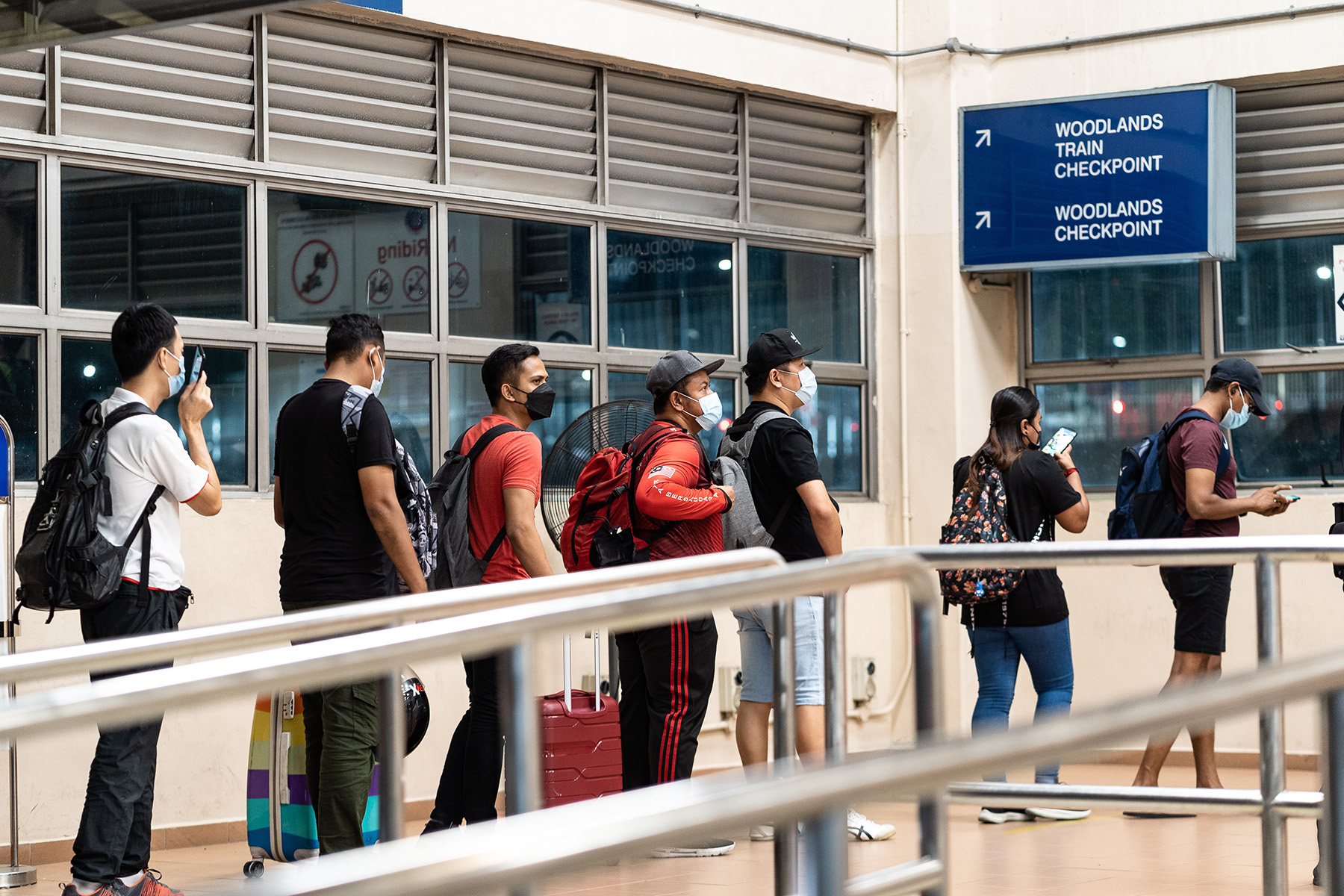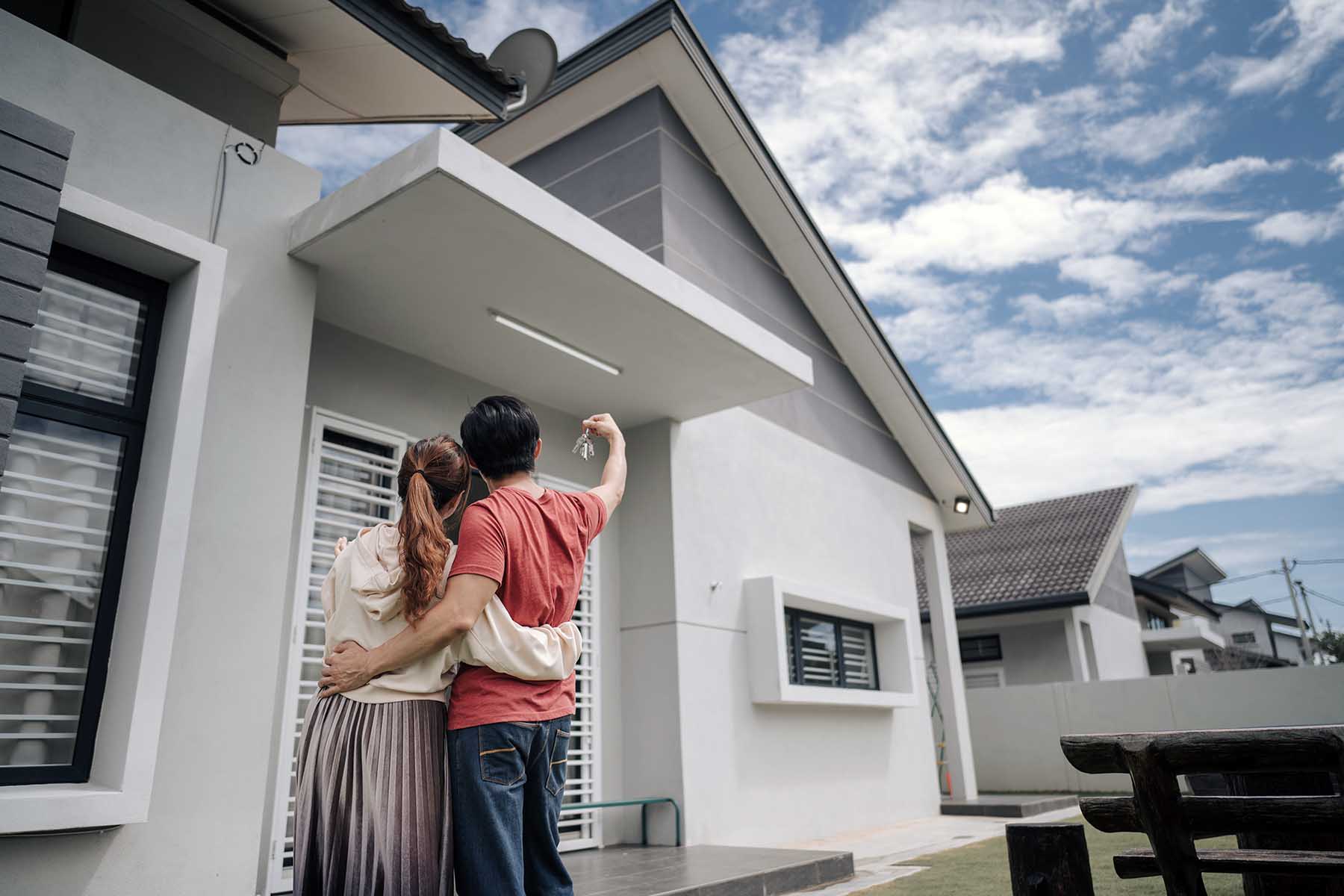One of the trickiest things about moving to a new country is understanding its financial system, and Singapore is no exception. If you’re relocating for work or to start a business, it’s essential to understand how the government will tax your income and learn about the deductions you can offset against your tax return.
Read on for advice on the following:
The tax system in Singapore
The Inland Revenue Authority of Singapore (IRAS) oversees the Singaporean tax system with favorable tax rates for individuals and businesses:
- Top income tax rate of 24%
- Corporate tax rate of 17%
- No capital gains tax

The tax year runs from 1 January to 31 December. The biggest quirk of Singapore’s tax system is that employers don’t deduct income from employees, so most residents must file annual tax returns.
Tax revenues in Singapore are on the rise. Data released in September 2024 shows tax receipts rose by 17% to reach a record of S$80 billion between April 2023 and March 2024.
Taxes in Singapore are levied at a federal level, with no notable regional or local taxes. The main taxes are as follows:
- Income tax: Rates range from 0–24% for tax residents and a flat rate for non-residents
- Corporate tax: Companies have to pay tax on their profits at a rate of 17%
- VAT/GST: The standard rate is 9%, but exemptions are available for some goods and services
- Property tax: Stamp duty is charged at progressive rates of 1–6% for local buyers. Homeowners pay an annual property tax based on the rental value of their home.
- Waste tax: The National Environment Agency (NEA) charges a standard rate of S$10.20 per month for people living in apartments and S$34 per month for those in houses
What is new about taxes in 2025?
The government announces upcoming tax reforms in its annual Budget, published in February.
In the 2025 Budget, the government kept personal income tax rates the same as before. Taxpayers were given a rebate of 60% of their income tax, capped at S$200. A one-off property tax rebate of up to 20%, capped at S$1,000, was also introduced.
For companies, a corporate tax rebate of 50% will be in effect for the second year in a row. The government says this is to help businesses cope with rising costs and an ‘uncertain external environment’.
Companies that don’t make profits but have at least one local employee can get a cash grant of at least S$2,000. Between the rebate and the grant, the maximum a company can benefit from is S$40,000.
Who pays tax in Singapore?
If you live in Singapore for at least 183 days per year and receive an income (employed or self-employed), you are legally obliged to pay income tax.
Tax residents pay income tax at the standard progressive rates of 0% to 24% and can benefit from certain deductions and allowances. Non-residents either pay income tax at a flat rate of 15% or via the progressive system, whichever results in a higher bill.
The IRAS determines a business’s tax residency based on the location of the company’s central management. Local and foreign firms pay the same corporate tax rates, but resident companies can benefit from tax allowances and exemptions.
How does tax work for expats?
International tax residents may be affected by two financial conditions in Singapore:
Singapore has more than 100 double taxation treaties with other countries. These agreements prevent residents and companies from being taxed on the same income in two different countries. It is a good idea to seek expert financial advice if you are an expat living in Singapore, as the exact rules may differ.
For example, the IRAS may or may not tax your foreign pension, depending on which country you received the payment.
Do I need a tax ID number in Singapore?
Singaporean citizens and permanent residents generally use their National Registration Identity Card (NRIC) for tax purposes, while internationals use their Foreign Identification Number (FIN).
Businesses require a Unique Entity Number (UEN) which you receive automatically when registering with the Accounting and Corporate Regulatory Authority (ACRA).
Types of tax in Singapore
Income tax
Income tax in Singapore is payable on earnings from:
- Employment
- Self-employment
- Investments
- Property
The first S$20,000 of earnings in Singapore are free from income tax. There are 13 income tax brackets, with rates ranging from 0% to 24%. These progressive rates only apply to tax residents. If you’re not a tax resident, you’ll either pay the progressive rates or a flat rate of 15%, whichever results in a higher tax bill.
The tax brackets for 2024 and 2025 are as follows:
| Income | Tax rate |
| Up to S$20,000 | 0% |
| S$20,000 – S$30,000 | 2% |
| S$30,000 – S$40,000 | 3.5% |
| S$40,000 – S$80,000 | 7% |
| S$80,000 – S$120,000 | 11.5% |
| S$120,000 – S$160,000 | 15% |
| S$160,000 – S$200,000 | 18% |
| S$200,000 – S$240,000 | 19% |
| S$240,000 – S$280,000 | 19.5% |
| S$280,000 – S$320,000 | 20% |
| S$320,000 – S$500,000 | 22% |
| S$500,000 – S$1 million | 23% |
| Over S$1 million | 24% |
Employers do not deduct income tax from salaries, but they will indicate how much tax you are liable for when you file your annual return. Also, married partners must submit their returns individually rather than jointly.
Anyone who earns an annual salary or wage higher than S$22,000 must file a tax return by 15 April (paper) or 18 April (online) and pay the amount in one lump sum or across 12 interest-free monthly installments.

Depending on their age, tax residents can also benefit from a standard ‘earned income’ relief of:
- S$1,000: Up to 55
- S$6,000: Age 55–59
- S$8,000: 60 and older
Additional allowances also exist for:
- Parents or caregivers with dependent children
- Partners who financially support their spouses
Income tax for self-employed workers
If you earn more than S$6,000 from self-employment, you will pay the same tax rates as employees but can deduct certain business expenses. You need to use Form B to file a tax return accompanied by a statement detailing your business’ revenue and deductible expenses.
Corporate tax
Companies must pay 17% corporate tax on profits, whether locally or internationally sourced (i.e., remitted in Singapore).

All businesses can apply for partial tax exemption (PTE), allowing them to deduct 75% of their first S$10,000 of income and 50% of the next S$190,000.
More significant tax exemptions are available for start-ups, who can deduct 75% of the first S$100,000 and 50% of the next S$100,000.
However, property development or investment companies do not qualify for these exceptions.
For 2025, companies are eligible for a 50% corporate tax rebate. Companies that don’t make a profit but employ at least one local employee will receive an automatic cash grant of at least S$2,000. The maximum benefit available across the rebate and the grant is S$40,000.
You can visit the IRAS website for more details on corporate tax in Singapore.
VAT in Singapore
VAT in Singapore is called Goods and Services Tax (GST), first introduced in 1993. The standard rate for companies is 9%.

Companies with a yearly turnover of over S$1 million must register for GST and file electronic returns with the IRAS quarterly. Conversely, businesses with lower revenues can register voluntarily.
Can you get a refund on VAT?
As a tourist, when you buy an item costing more than S$100 in Singapore, you can claim a refund on the GST. You can apply for this online or use the Electronic Tourist Refund Scheme (eTRS) at self-service kiosks at the airport.
However, there are conditions:
- You must buy from a participating vendor displaying the ‘tax-free’ logo
- You cannot be a citizen or permanent resident of Singapore (i.e., this only applies to visitors or tourists)
If you are unsure how to claim a GST refund, you can find more detailed information on Singapore’s Tourism Board’s website.
Property tax
The IRAS taxes the annual value of property and land in Singapore. It calculates these real estate prices based on the estimated yearly rental income, reviewing them every year.
A one-off rebate was introduced for 2025. Residents living in a Housing and Development Board (HDB) flat benefit from a rebate of 20%, while those in private properties benefit from a rebate of 15%. Rebates are capped at S$1,000.

Homeowners in Singapore pay taxes ranging from 0% to 32% on their primary dwelling. Additional properties, such as holiday, rental, or investment homes, are taxable at 12% to 36%.
A flat rate of 10% applies to commercial properties and land.
Stamp and mortgage duty
If you buy a home in Singapore, you must pay Buyer’s Stamp Duty (BSD).
Stamp duty is charged progressively from 1% to 6%. You can find the latest rates from the IRAS under ‘rates and computation.‘ Buyers will also need to pay mortgage duty if they take out a loan to fund their purchase.
Additional stamp duty
In April 2023, the government announced an increase in Additional Buyer’s Stamp Duty (ABSD) rates, payable when you purchase a property other than your primary home (for example, an apartment to let).
Local citizens must pay a rate of 20%, while those with permanent residency pay 30%.
Changes to rates for foreign buyers
The government doubled the stamp duty rates (2023) charged to foreigners living outside the country when buying Singaporean properties. The standard rate payable has risen from 30% of the property’s value to 60%.
Tax on rental income
If you let property in Singapore, you can offset expenses you incur against your tax bill. You can either offset a standard rental income deduction of 15% or claim the actual costs you’ve incurred.
Inheritance tax
Singapore abolished inheritance tax (estate duty) in 2008, so residents won’t need to pay tax on endowments.
However, if you inherit property, you may need to pay stamp duty if you resell it within three years of the date the deceased took ownership. You may also be required to pay ABSD if you purchase additional properties after inheriting one.
Import and export tax
Singapore only has a few import restrictions. For example, customs and excise duties are payable on:
- Alcohol
- Tobacco
- Vehicles
- Petrol
The rates payable are based on the value and weight of the imported goods. As exact calculations can be complicated, it is best to consult the Singapore Customs guide for examples.
Carbon tax
The first Southeast Asian country to implement a carbon tax – at projected rates of S$25/tCO2e (2024–2025); S$45/tCO2e (2026–2027); S$50-80/tCO2e by 2030
Road tax
If you own a car, you must allow for three additional payments – the Certificate of Entitlement (COE), Additional Registration Fee (ARF), and road taxes. Exemptions may apply – see the guide from the IRAS.
Digital services tax
Consumers must pay GST on all remote services, including digital and non-digital, bought from GST-registered overseas providers. This rule was introduced in 2023.
Tax avoidance and evasion in Singapore
Tax evasion is a criminal offense in Singapore. More than S$270 million in tax and penalties was recovered from businesses over three years, according to IRAS data.
IRAS also highlighted a trend where high-income individuals set up companies so they can pay corporate tax rates on their income rather than income tax.
For individuals and companies, there are four possible outcomes in an IRAS investigation:
- Prosecution
- Composition (agreeing to settle the bill without prosecution)
- A stern or conditional warning
- No further action (if no evidence is found or no offense proven)
If someone is found guilty of ‘serious fraudulent tax evasion,’ the maximum penalty includes:
- Four times the amount of tax underpaid
- A fine of up to S$50,000
- Imprisonment of up to seven years
Lower penalties apply for errors made without the intention to evade taxes.
If you report possible tax evasion, and the investigation leads to the recovery of funds, you may receive a reward of 15% of the tax recovered (up to S$100,000).
Tax advice in Singapore
The IRAS website has handy online tools to determine your eligibility for tax relief and calculate the rebates. It covers the following categories.
- Personal reliefs and rebates
- Earned income relief
- Spouse/disabled spouse relief
- Foreign domestic worker levy relief
- CPF relief for employees or self-employed
- National Service (NS)man (self/spouse/parent) relief
- Parent/disabled parent relief
- Grandparent caregiver relief
- Qualifying/disabled child relief
- Working mother’s relief
- Disabled sibling relief
- Tax savings for married couples and families
- Parenthood Tax Rebate (PTR)
If you have questions about your tax liability as an expat living in Singapore, you should seek professional financial advice from experts accredited by the Singapore Chartered Tax Professionals (SCTP).
You can also seek information – when looking for an accountant – from the Institute of Singapore Chartered Accountants (ISCA), the leading accountancy professional trade body.
Useful resources
- Inland Revenue Authority of Singapore (IRAS) – the governmental department overseeing the tax system in Singapore
- Tax rebates and reliefs – IRAS information about tax deductions
- Parenthood Tax Rebate – PTR eligibility tool
- Visiting Singapore – official advice from Singapore’s tourism board on GST refunds
- MyTax – the digital IRAS platform to use when filing a tax return







